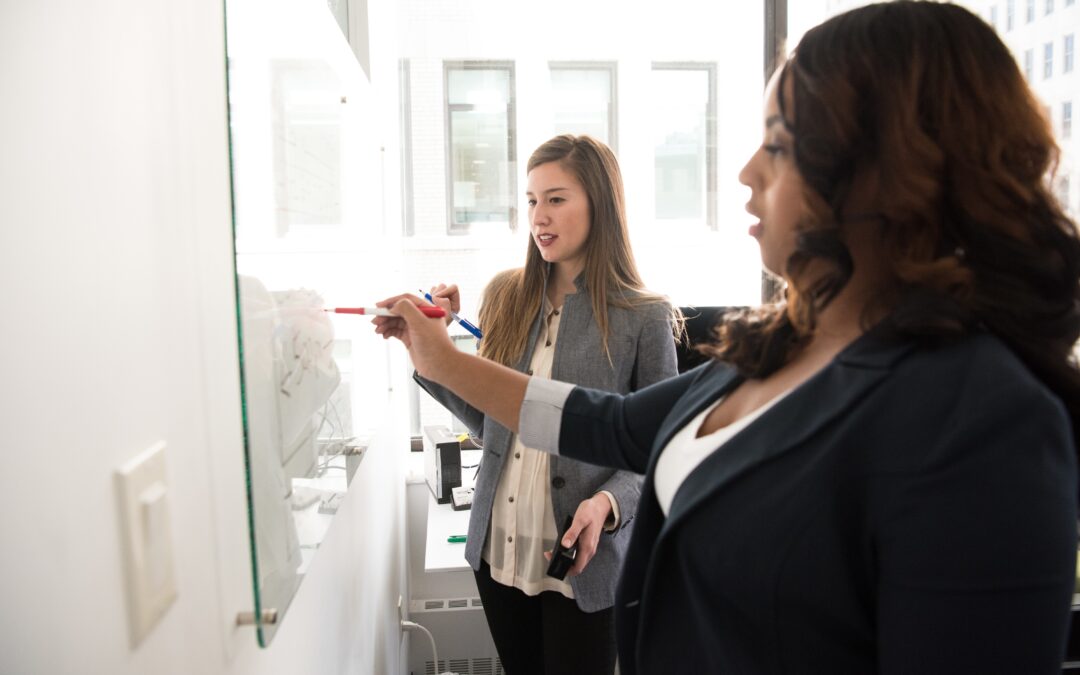
by Laura Rennie | Dec 4, 2020 | Goals
There is so much to love about this time of year. One of my favorite things to do in December is to reflect on the past year and begin anticipating the months ahead. Goal-setting is my jam, but if I’m honest, I easily lose momentum when it comes to resolutions. In hindsight, I’m grateful I didn’t put pressure on myself back in January 2020. Who could have known what a crazy year we’d all face?
While this certainly wasn’t the year anyone expected and we’ve all had to make adjustments, I can still say I learned a lot. Here’s what stands out as I reflect on 2020 and look ahead to 2021:
What I Will Keep
I’m grateful to say that despite the chaos in the world around us, my personal mental health blossomed this year. I chose to take a few months off of work, slowly re-built my hours, and now work a part-time job that brings me enjoyment and involves little stress. I learned to be gentle with myself, letting go of the pressure to live a life that looks like everyone else’s and instead embrace what works best for my family.
I also took on new hobbies: how to garden, how to cross-stitch, and how to paint with gouache (okay, I’m still learning that one). I became more flexible, a necessary skill to survive this year! And best of all, through a therapy session and much prayer and reflection, I learned to accept and appreciate my spouse instead of focusing on what could be different.
What I Will Leave Behind
I’m grateful for the opportunities to leave some things behind and start fresh in 2021. If you’re like me, you felt the pull of the news and social media more than ever this year. The pressure to be connected at all times has worn me out and threatens to dismantle the inner peace I’ve worked hard to protect.
I also want to leave behind the negativity and temptation to complain that has seemed inescapable. I imagine it will be some time before our lives all go back to “normal” (or whatever our new normal will be). Acknowledging the grief caused by the pandemic is necessary and valuable. We are allowed to mourn the many losses we’ve experienced. But as much as I can, I want to move forward with thankfulness for what I have. That leads me to my goals for 2021!
New Goals for the New Year
In 2021, I want to continue prioritizing health, self-growth, and gratitude. I want to hike with my daughter (I just purchased hiking boots for both of us), do another stitching project (also purchased), and go on a writing retreat, among many other things. I am trying something new and starting my goals this month so that I will hopefully have already created new habits before the New Year hits.
What good from this year will you carry with you into 2021? What will you leave behind? We’d love to know!

by Laura Rennie | Dec 1, 2020 | Personal Development, Professional Development
During my last coaching call, Coach Carol pointed out to me that I was seeking feedback in nearly every area of my life. I was intrigued by this observation. I think it’s in my personality to crave feedback — I love affirmation, and I’ve always been the type of person to want to do things the best way possible. This craving for input has led me to seek my mom’s input on parenting my daughter, to ask my boss if I should tackle a project from a different angle, and question my husband on his honest take on what I serve for dinner.
But not everyone actively seeks the input of others. It can be intimidating (not to mention humbling) to invite the opinion of someone else. Trust me, the discomfort is worth bearing. I’ve learned several specific advantages of receiving feedback along the way.
You learn to not let mistakes define you
The biggest reason people avoid seeking feedback is their fear of failure. Who wants to be vulnerable to exposing mistakes? As we shared in a recent post on professional growth, people with a growth mindset believe intelligence can be developed, and they view failure as an opportunity to learn and try again. They see possibilities, rather than limitations. Therefore, someone who receives feedback with an open mind is able to move forward instead of staying stuck in their current situation.
You learn new perspectives
Do you want to stay sharp and ensure your work doesn’t become stale? Seek feedback from safe people who will challenge you with unique thought processes. By being open to the ideas of others, you allow yourself to grow as a person and embrace change. You might learn your coworker has a brilliant method for time management, for example. Perhaps your business coach longs to convince you to let go of a problematic client.
Admitting that there is more than one way to approach an issue frees up your mind to see a variety of strategies. A whole new world of possibilities awaits those who are willing to see them!
You set an example for others
A leader who invites feedback from their team will not only grow in their own leadership but also inspire others to adopt a growth mindset. If you desire your team members to be open-minded, you must be willing to display this skill and seek opportunities to strengthen it.
Plus, the more you practice receiving feedback, the better you become at giving it. After all, the tenth step in Brené Brown’s feedback readiness checklist is, “I can model the vulnerability and openness that I expect to see from you.”
Whether or not you apply the feedback you receive is up to you. Either way, you’re sure to gain from the experience.

by Laura Rennie | Oct 26, 2020 | Personal Development, Professional Development
I’ve always loved the idea of private coaching, and have even entertained the thought that I might make a good coach myself. But before the spring, I had never experienced an actual coaching call. I consider myself a self-aware person. I have a nice life: I have a job, good health, solid faith, loving family and friends… what could I gain from private coaching? What would someone coach me on? It turns out I had a lot to learn!
Why I Started Private Coaching
I started private coaching earlier this year after quitting a job I was extremely invested in. It took a lot of courage to quit, and I was proud of myself. I didn’t want to lose this suddenly realized self-empowerment. I wanted to dig deeper, to fully recognize my ability to control my own choices and behavior. I had attended Wholistic Coaching Coalition events for several years and appreciated that each event left me feeling encouraged and motivated, but I had never tried their private coaching service. I knew the best way I could continue moving forward on my journey towards self-growth was to receive expert help.
I began private coaching with Coach Carol, and through our conversations I have received invaluable input. The following are three things I appreciate most about our time together:
Expert observations
Each of the Wholistic Women coaches offer their own unique expertise, such as positivity, leadership skills, parenting, finance, and more. Carol is trained in CliftonStrengths, an assessment that helps people discover their greatest talents and how to best use them. I shared my assessment results with Carol, and she references my report on our call. For example, she will point out when I’m using my empathy strength on my husband, or when I’m using my developer strength on myself. These insights have not only been empowering, but they’ve also given me a new perspective on my talents.
Thoughtful questions
One promise of private coaching is that recipients will be carefully listened to. I never have to wonder if Carol is actually listening to what I’m saying, because she asks thoughtful questions in response. Depending on the topic, her questions are designed to either help her understand me better, or make me dig deeper. I’ll admit, sometimes this aspect of private coaching can be difficult. It isn’t always easy to be vulnerable with someone. However, I’ve developed a trusting relationship with my coach and I feel fully comfortable being my true self with her. (It’s an incredible feeling!)
Action steps
There’s more to private coaching than just talking — the process also involves taking action! Carol and I work together to create action steps based on what I’m struggling with or hoping to gain. These action steps motivate me to move forward, and I’m always excited to share my results with Carol. I keep a journal to record her questions, observations, and action steps, and I reference it often.
If you are looking for someone to listen, offer new perspectives, and help you grow, give private coaching a try. I highly recommend it!

by Laura Rennie | Sep 23, 2020 | Group Coaching
Whether you’re attending as an individual or signing up your team, you know group coaching is the next right step. You’re ready to bounce ideas off of other people and receive helpful feedback. But how do you know which group coach will be a good fit for you? Here are four skills you should expect a quality group coach to have:
Active listening
Does your group coach listen patiently and make you feel heard? An article from the Gift of Life Institute on the importance of active listening states, “Listening has been shown to be essential to communicating respect for another person.” Active listening goes beyond simply hearing what a person says and physically shows empathy, understanding, or a desire for clarification through nodding, asking follow-up questions, and using affirming language. “Active listening includes responses that demonstrate that you understand what the other person is trying to tell you about his or her experience.”
Red flag to look for: interrupting and dismissive language. In fact, your group coach should not only be an active listener himself/herself, but also be able to foster active listening within the group.
Goal-setting
Group coaching participants can be working together on the same goal or may be comprised of individuals with similar goals. A great group coach will listen to your pain points, ask meaningful questions, and come alongside you to create goals that are clearly defined and achievable. He or she will help you stay focused as you work towards meeting your goals.
Red flag to look for: criticism and judgment. If you find yourself struggling to succeed, your coach should provide encouragement and practical suggestions.
Constructive feedback
One of the best benefits of group coaching is receiving constructive feedback. Remember, you have to be open to receiving feedback in order to see results! A skilled coach will not only provide you with direct feedback, but also facilitate a group environment that encourages honesty, curiosity, and open communication. Constructive feedback is achieved by asking questions and offering positive and motivating responses.
Red flag to look for: a negative group environment. Part of the group coach’s job is to create a safe and healthy foundation built on trust and mutual respect.
Accountability
Your group coaching sessions will include time for “checking in” on your goals. You’ll also have the opportunity to connect with members of your group outside of the sessions. A successful group will celebrate one another’s successes and continue challenging one another to grow.
Red flag to look for: lack of follow-up from the group coach. Your group coach should be engaged in your journey.
Looking for group coaches you can trust? Our team of professional coaches offers coach-facilitated groups where you can expect to benefit from all four of the above skills (and more)!

by Laura Rennie | Sep 10, 2020 | Personal Development
When was the last time you did something for yourself? We often think of self-care in terms of at-home activities such as reading a novel, taking a bath, or going for a run. But if the core purpose of self-care is to address our mental, emotional, and physical health, we need to learn how to weave it into our work, too. Enter professional development — the process of improving and increasing your capabilities in the workplace.
By learning new skills and ways of thinking, you are literally changing your brain. (How cool is that?) Consider how learning might bring you more satisfaction at work. Consider how getting outside of your comfort zone might open the door to opportunities you didn’t know existed. The great thing about professional development is there’s no graduation ceremony — you are a life-long learner!
Here are three ways to maximize your professional development, and in turn, take great care of yourself.
Embrace a growth mindset
Have you heard of a “fixed mindset” versus a “growth mindset?” If you believe your qualities are unchangeable and that you can’t change your intelligence over time, you have a fixed mindset. You likely avoid challenges because you’re afraid of failure, you strongly desire people to view you as smart, and you’re devastated by criticism. (Does this sound like you? That’s okay! The good news is, you can change your mindset.)
Those with a growth mindset believe intelligence can be developed, and they view failure as an opportunity to learn and try again. They see possibilities, rather than limitations.
The hard truth is you won’t get far in your professional development if you approach it with a fixed mindset. Check out the fascinating book “Mindset” by Carol S. Dweck to learn more about how to foster a new way of thinking that promises a huge impact on not only your work but your relationships as well.
Invest in business coaching
Imagine being able to take yourself out of the equation and see your work life from an unbiased eye. You simply can’t do that alone — you need the help of someone with zero personal attachments to your work.
A business coach is a valuable asset for anyone wanting to maximize their professional development. He or she will listen to your concerns and help you create a path forward. You’ll receive helpful feedback, actionable steps, and accountability.
Spend more time on your hobbies
Yes, you read that correctly. Playing the guitar, cross-stitching, hiking… the list goes on. Engaging in hobbies has a positive impact on your professional development because satisfaction and enjoyment in your personal life can’t help but spill over into your work life.
For example, imagine spending your weekend pulling weeds out of your yard, dead-heading your roses, and plotting out a vegetable garden. By the end of the night, you’re sweaty and exhausted, but you can see the visible fruit of your labor and you’re excited to get started on your vegetable garden. You wake up Monday morning sore but happy, and you’ve wired a message into your brain that hard work pays off. You’re ready to tackle the big project your boss has entrusted you with.
Are you ready to care for yourself well and maximize your professional development by changing the way you think, being open to feedback, and embracing a hobby you love? You can do this! We’re here to help.





